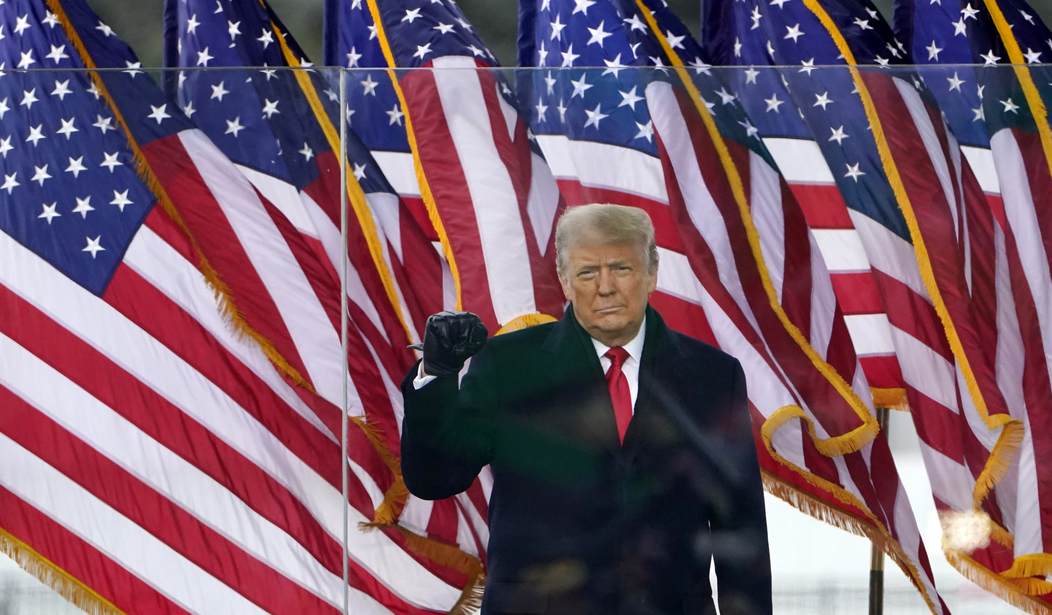Jonathan Turley is the Shapiro Professor of Public Interest Law at George Washington University and has testified on numerous occasions before Congress on constitutional issues. He testified during the impeachment proceedings of both Bill Clinton and Donald Trump, experience that gives him a unique position on the Democrat’s rush to impeach Trump a second time.
It appears that the Democrats are going to focus their impeachment effort on Trump’s alleged incitement of the mob to break into the U.S. Capitol. Turley said that’s a bad idea on many levels and also claims the plan on impeaching Trump before he leaves office is dangerous to the Constitution.
There was no call for lawless action by Trump. Instead, there was a call for a protest at the Capitol. Moreover, violence was not imminent, as the vast majority of the tens of thousands of protesters were not violent before the march, and most did not riot inside the Capitol. Like many violent protests in the last four years, criminal conduct was carried out by a smaller group of instigators. Capitol Police knew of the march but declined an offer from the National Guard since they did not view violence as likely.
So Congress is now seeking an impeachment for remarks covered by the First Amendment. It would create precedent for the impeachment of any president blamed for violent acts of others after using reckless language. What is worse are those few cases that would support this type of action. The most obvious is the 1918 prosecution of socialist Eugene Debs, who spoke against the draft in World War One and led figures like Woodrow Wilson to declare him a “traitor to his country.” Debs was arrested and charged with sedition, a new favorite term for Democrats to denounce Trump and Republicans who doubted the victory of Joe Biden.
Turley points out that a 1919 Supreme Court decision criminalized some political speech. A conviction of the famous socialist Eugene Debs for incitement stemming from remarks he made against the draft led the Court to rule that “it was sufficient that his words had the ‘natural tendency and reasonably probable effect’ of deterring people from supporting the international conflict.”
Now Democrats want to impose a similar standard on presidents.
That decision was a disgrace, but Democrats are now arguing something even more extreme as the basis for impeachment. Under their theory, any president could be removed for rhetoric that is seen to have the “natural tendency” to encourage others to act in a riotous fashion. Even a call for supporters to protest peacefully could not be a defense. Such a standard would allow for a type of vicarious impeachment that attributes conduct of third parties to any president for the purposes of removal.
Democrats are pushing this dangerously vague standard while objecting to their own remarks given new meaning from critics. Conservatives have pointed to Maxine Waters asking her supporters to confront Republicans in restaurants, while Ayanna Pressley insisted amidst the violent marches last year that “there needs to be unrest in the streets,” and Kamala Harris said “protesters should not let up” even as some of those marches turned violent. They can legitimately argue their rhetoric was not meant to be a call for violence, but this standard is filled with subjectivity.
The selective and subjective interpretation of the law is always dangerous — especially when the law is used as a club against political opponents. At the time, some on the Right tried to use those remarks from Democrats to argue for incitement, despite the fact Democrats merely engaged in exaggerated political speech.
Trump’s remarks at the rally before the march to the Capitol have since been interpreted as a call to violent action in the aftermath of the attack. But if nothing had happened, wouldn’t they be seen in an entirely different light? Trump’s speech, while “reckless” in Turley’s words, was not illegal and certainly didn’t come close to fulfilling the requirements for prosecution under the law.










Join the conversation as a VIP Member